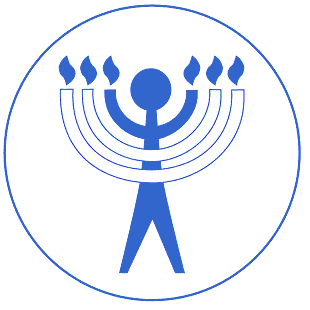The Jewish Humanist, September 1994
Tutsi. It has the sound of some bizarre tribal name for Africa. It is also the name of a holocaust. Some 500,000 Tutsis have been massacred by their Hutu neighbors in a faraway land called Rwanda. Thirty years ago the murder of Africans by Africans would not have been deemed important. But in the age of television and Third World awareness, the Tutsis have turned into real people. One-eighth of their nation was destroyed by beatings, burning and hacking. The horror of their dismembered and floating bodies was captured on film and displayed itself on the television screens of the world.
The Tutsis are black. But they are not Bantus like most of the blacks in Central Africa. They are Nilotics, former residents of the upper Nile. They are taller, thinner and with narrower noses than their Bantu neighbors. Four hundred years ago they invaded Rwanda, conquered the native Bantus and pygmies and settled down as a governing aristocracy. The symbol of their culture was herds of cattle and the sign of their power was Bantu obedience. Like their fellow Nilotics, the Masai who settled in what today is Kenya, they saw themselves as superior to their Bantu subjects.
The native Bantus in the Tutsi kingdoms of Rwanda and Burundi were the oppressed Hutus. They came to hate the Tutsis. But they did not have the power to overthrow them. Although Tutsis and Hutus were both black, they were and are physically distinct. The Hutus are much shorter, especially because they mixed with the aboriginal pygmies whom they had conquered and oppressed. The pygmies fled Into the rain forest where they still remain. Over the years Tutsis and Hutus lived together as lords and servants. In time they came to speak the same language. But the national, social and physical differences persisted.
In the nineteenth century the Europeans arrived In the form of Germans. The Tutsi kingdoms became German protectorates. After the First World War, the Tutsi kingdoms were taken by the Allied victors from the Germans and given to the Belgians. Both the Germans and the Belgians brought European soldiers, missionaries and culture to Rwanda and Burundi. They also trained many blacks to be teachers, administrators and military auxiliaries. In choosing to train collaborators both the Germans and the Belgians preferred the Tutsis. They saw them as a handsome race and ma desirable as allies.
When Belgium gave up its colonial empire the early 1960’s, she granted independence to the Congo (Zaire) – and to Rwanda and Burundi. But Independence left the Tutsis a vulnerable position. They were only 15% of the population in both states. They were hated and resented by the Hutus. The Belgians were no longer there to support them. The government of Zaire, a large nation of Bantus on the West, sympathized with their Bantu brothers.
In both Rwanda and Burundi, Hutu rebellions broke out reinforced by overpopulation and the struggle for land. In Burundi the Tutsi minority maintained their power. But in Rwanda the Tutsis lost their power.
The tables were turned. Hutus now assaulted Tutsis. Hundreds of thousands were killed. Many Tutsis fled eastward to Uganda, where the black population was less Bantu and more Nilotic. With the help of the Ugandan government, the president of which was Tutsi, they organized a resistance movement to regain their power. They called it the Rwanda Patriotic Front. They invaded Rwanda with the specific aim of overthrowing Hutu power. The Hutu army retreated before them.
The Hutu government of Rwanda was desperate. Extremists took over. Using the death of their president in plane crash as a pretext, they mobilized the Hutu masses against the Tutsi invaders with horror stories of Tutsi Intentions to kill all Hutus. Ironically, the Tutsi soldiers did not Massacre Hutus. But the Hutu masses, inflamed by government propaganda and intimidated by local militias, turned on their Tutsi neighbors and mercilessly killed a half million of them.
In the end, the massacre did not help the Hutus. Their armies retreated to Zaire. And two million Hutus, fearful of Tutsi vengeance, fled with them. Today half the Hutu population of Rwanda lives hopelessly as refugees in Zaire. Their enemies are no longer Tutsis. They are starvation and cholera.
What does all this mean?
It means that ethnic holocausts can still take place without any significant intervention from the outside world. The French arrival was self-serving. They were trying to rescue their Hutu allies and failed.
It means that Africans will oppress Africans and that Africans will kill Africans without any significant provocation from white colonialists. African nations left to their own devices do not have a better moral record than their European oppressors.
It means that militant nationalism is counter-productive when two nations share the same territory. Separating Hutus and Tutsis is not physically or economically possible.
It means that the United States has failed again morally. As the leading power in the world, it needed to mobilize its allies and the United Nations to rescue a vulnerable minority from extermination. The Tutsis have a morally ambivalent history. But they do not deserve to be massacred.
It means that we, as Jews, the most dramatic victims of racial holocaust, must do whatever we can do to insure that the perpetrators and organizers of this massacre are brought to Justice before an appropriate international tribunal. Such a crime can no longer be swept under the rug of history.

